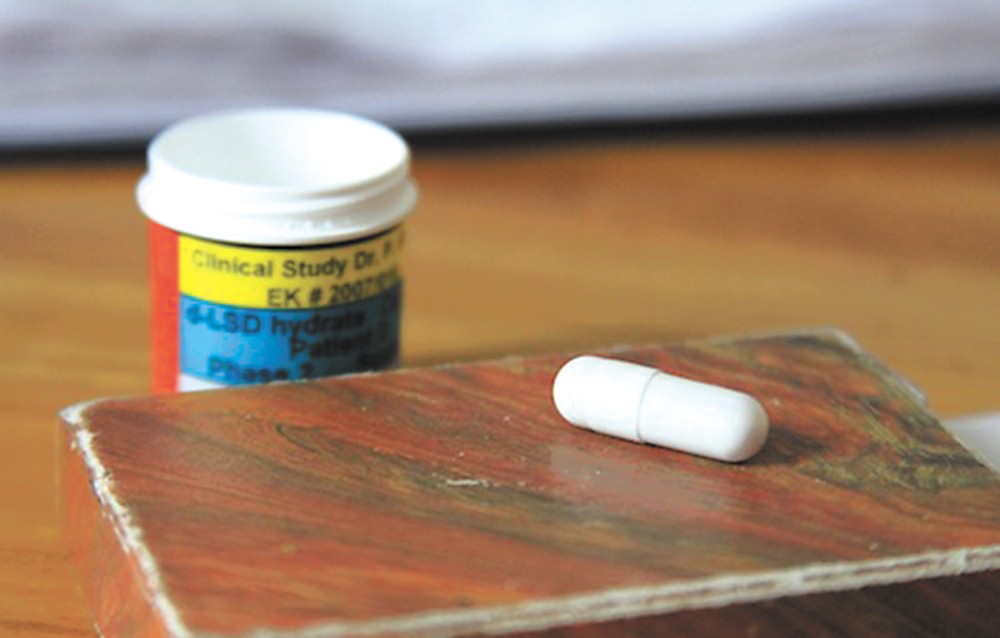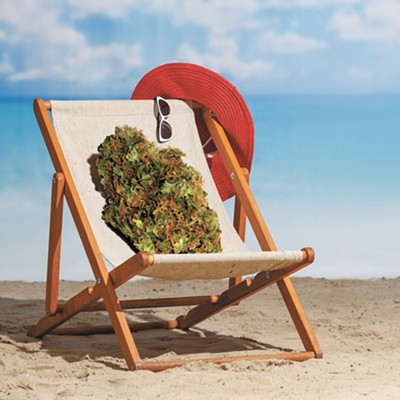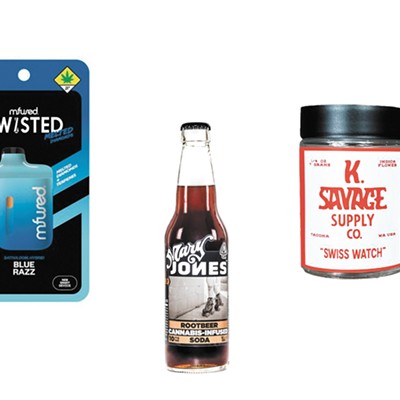Have you noticed lately the reemergence of psychedelic substances in mainstream discussions of mental health? If so, you're not hallucinating. "That's a fact," says Brad Burge, director of communications and marketing at the Multidisciplinary Association for Psychedelic Studies (MAPS) in California. "We're 40 years behind schedule," he adds — LSD and psilocybin, for example, were outlawed in the 1960s — but it's not just speculation: There are more studies being conducted today on psychedelics for various uses in institutional and privately funded settings than ever before.
One such use is as a medical prescription in conjunction with psychotherapy for the treatment of post-traumatic stress disorder. PTSD is already a qualifying condition for medical cannabis in Washington and 17 other states, and Burge predicts a similar future for at least one psychedelic, MDMA (the criminalization of which in 1985 was the impetus for the founding of MAPS), by 2021, pending approval by the FDA. In an interview at the Psychedelic Science 2013 conference, Burge said his organization found, in a published trial, that 83 percent of subjects no longer exhibited core symptoms of PTSD after just two clinical sessions with MDMA-assisted psychotherapy, and that those results were sustained nearly four years later.
"PTSD is literally an epidemic," says Burge, particularly among soldiers returning home from America's conflicts abroad. The Department of Veterans Affairs, according to a study released this past summer, estimates that 20 veterans commit suicide every day. But the VA's hands are tied: Doctors in the administration can't prescribe treatments like cannabis therapy (let alone psychedelic therapy) under federal law, even in states with legal medical marijuana programs such as Washington.
"We need FDA approval," says Burge. Shifting public perceptions are helping to manifest a future in which that can happen.
The renewed interest in alternative treatments for conditions like PTSD, Burge speculates, is a reaction to the failure of the "war on drugs" and, in part, to the increasing abuse of prescription drugs including Prozac and Zoloft. The culture, what Burge has called the "set and setting of science," has warmed to the idea of psychedelics as a valid subject of study (after cannabis legalization has helped "pave the way," he says), and the counterculture hysteria of the past that cast the drugs as salvific gateways to utopia is largely absent. That's where the movement, he says, "went off the rails."
"They weren't doing clinical research, they weren't working with regulatory authorities, and they weren't talking with policy makers. Now we are," says Burge. "The key thing we can do now is to not proselytize, and just look at psychedelics as one treatment option among many. A new box of tools, essentially." ♦




















